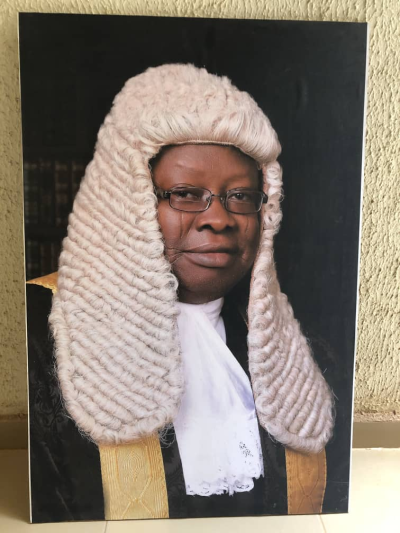In a landmark ruling that reasserts the autonomy of Nigeria’s legislative institutions, the Federal High Court sitting in Abuja has upheld the power of the Nigerian Senate to discipline its members in accordance with its Standing Orders.
The Court also found Senator Natasha Akpoti-Uduaghan guilty of contempt of court, imposing a ₦5 million fine and ordering a public apology for ridiculing the judicial process via social media.
Presided over by Justice Binta Nyako, the judgment arose from a suit instituted by Senator Akpoti-Uduaghan challenging her referral to the Senate Committee on Ethics, Privileges, and Public Petitions and her subsequent suspension from plenary activities.
The court resolved all substantive legal issues in favour of the Senate, the Senate President, and other Respondents.

A Satirical Post That Backfired: The Contempt Charge
The most dramatic aspect of the ruling came as the Court found the Plaintiff in contempt of a restraining order issued on April 4, 2025, which barred public commentary on the ongoing case.
Despite this order, Senator Natasha proceeded to publish a satirical “apology” on her verified Facebook page on April 27, 2025, mocking both the Senate President and the judiciary.
“This publication was not just in bad taste—it was a direct affront to the authority of the court and an act calculated to ridicule the legal process,” Justice Nyako ruled.
As punishment, the court ordered the Senator to:
- Pay ₦5 million to the Federal Government.
- Publish a formal apology in two national newspapers and on the same Facebook page within seven days.
Disciplinary Powers of the Senate Reaffirmed
In the substantive ruling, the court held firmly that the Nigerian Senate possesses constitutional authority to regulate its internal proceedings, including disciplining members who violate its standing orders.
The Court validated:

- The lawfulness of the Senate President’s action on February 20, 2025, to reassign Senator Natasha’s seat under Section 6(1) of the Senate Standing Rules.
- The rule is that a senator may only speak from their assigned seat, and Senator Natasha violated Section 6(2) by attempting to address the plenary from an unallocated seat.
- The referral of the Senator to the Senate Committee on Ethics as procedurally and substantively valid.
Suspension Upheld, Though Term Deemed Excessive
While affirming the legality of the Senate’s disciplinary mechanism, the Court expressed concern over the duration of the suspension—six months—which, though valid, was considered excessive in light of the frequency of legislative sittings and the rights of constituents to be represented.
“Disciplinary measures must be proportionate to the offence committed. Over-penalizing an elected official risks punishing the people they represent,” Justice Nyako cautioned.
Legal and Constitutional Implications
This judgment carries profound constitutional significance, especially in the areas of:
- Legislative independence and self-regulation,
- Judicial respect for sub judice principles,
- Digital expression boundaries for public officials,
- And the principle of separation of powers.
In my view, this decision reinforces the essential balance between parliamentary autonomy and judicial oversight.
The Senate must have the capacity to preserve decorum and discipline within its chambers, just as the courts must uphold the integrity of their orders—particularly in an era where digital platforms can be weaponized against institutions.
It also sends a powerful message to public office holders: freedom of expression does not include the freedom to mock court orders or diminish institutional integrity. Satire is not a shield against accountability.
This case serves as a judicial milestone in defining the limits of intra-legislative discipline and the legal consequences of contemptuous online conduct by public officials.
It is a reminder that the democratic institutions we serve—whether in the legislature, executive, or judiciary—deserve not only compliance but also respect.
In an era of growing digital populism, the court has reaffirmed that the rule of law, not social media theatrics, is the bedrock of democratic accountability.










